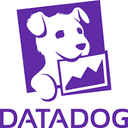
Datadog
Datadog offers monitoring, observability, and security for cloud-scale applications, unifying metrics, logs, and traces to help teams detect issues and optimize performance
VIEWS
1676
USERS
47
CATEGORY
Developer Tools & DevOps
VERSION
Install MCP Server
Paste and run this command in your terminal to set up Cursor with MCP
After running the command, restart Cursor to start using the MCP Server.
Available Tools
Create Dashboard
Create a dashboard in datadog. dashboards provide customizable visualizations for monitoring your infrastructure, applications, and business metrics in a unified view.
Create Downtime
Creates a new downtime in datadog to suppress alerts during maintenance windows or planned outages. useful for preventing false alarms during deployments or maintenance.
Create Event
Creates a new event in datadog. events are useful for tracking deployments, outages, configuration changes, and other important occurrences.
Create Monitor
Creates a new datadog monitor to track metrics, logs, or other data sources with configurable alerting thresholds and notifications.
Create Slo
Create a service level objective (slo) in datadog. slos help you define and track reliability targets for your services, enabling data-driven decisions about service quality and reliability investments.
Create Synthetic Api Test
Create a synthetic api test in datadog. creates a new synthetic api test that continuously monitors api endpoints from multiple locations worldwide. useful for proactive monitoring of api uptime, performance, and functionality.
Create Webhook
Create a webhook in datadog. webhooks enable you to receive notifications from datadog monitors and alerts to external services and applications.
Delete Dashboard
Delete a dashboard in datadog. permanently removes a dashboard from your organization. this action cannot be undone. use with caution.
Delete Monitor
Deletes a datadog monitor permanently. use with caution as this action cannot be undone.
Get Dashboard
Get a specific dashboard from datadog. retrieves detailed information about a dashboard including its widgets, layout, template variables, and metadata.
Get Monitor
Retrieves detailed information about a specific datadog monitor, including its current state, configuration, and any active downtimes.
Get Service Dependencies
Get service dependency mapping from datadog apm. this action retrieves the dependency graph for a specific service, showing both upstream services (that call this service) and downstream services (that this service calls). it's essential for: - understanding the blast radius of service failures - identifying critical dependencies during incidents - analyzing service communication patterns - planning architectural changes - monitoring service health in context the dependency information includes call rates, error rates, and latency metrics to help assess the health of service relationships.
Get Synthetics Locations
Tool to retrieve all available public and private locations for synthetic tests in datadog. use when you need a list of location identifiers for creating or managing synthetic tests.
Get Host Tags
Retrieves all tags associated with a specific host in datadog. useful for understanding host metadata and organizing infrastructure.
Get Trace By Id
Get detailed information about a specific trace by its id. this action retrieves comprehensive details about a distributed trace, including all spans, timing information, errors, and metadata. it's essential for: - deep diving into specific request flows during incidents - understanding the complete journey of a problematic request - analyzing performance bottlenecks in detail - correlating errors across services - debugging complex distributed system issues the trace id is typically obtained from logs, error reports, or trace search results.
Get Usage Summary
Retrieves usage summary information from datadog including api calls, hosts, containers, and other billable usage metrics. useful for cost monitoring and usage analysis.
List All Tags
List all tags from datadog. tags help organize and filter your infrastructure and applications. this action shows all tags in use across your organization.
List Api Keys
List api keys in datadog. retrieves all api keys in the organization for security auditing, access management, and key rotation planning. helps maintain security posture by tracking key usage and ownership.
List Apm Services
List apm services from datadog. application performance monitoring (apm) provides deep visibility into your applications, helping you track performance, errors, and dependencies.
List Aws Integration
List aws integrations in datadog. retrieves all configured aws account integrations, showing which aws accounts are monitored by datadog and their configuration settings. useful for cloud infrastructure management and ensuring comprehensive monitoring coverage.
20 actions available